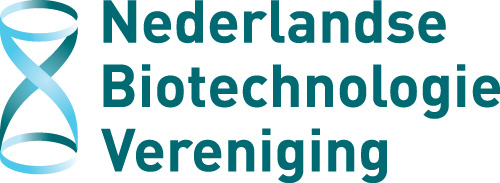Schedule of Minisymposium “Developing the next generation biorefinery”
| On Tuesday 20 November: | |
| 18:00 - 19:00 | Registration, Coffee & Sandwiches |
| 19:00 - 19:05 | Opening by Session Chairs |
| 19:05 - 19:35 | Recovery of valuable compounds from food industry side streams |
| 19:35 - 20:00 | Role of Continuous Downstream Processing to Enhance Techno-Economic Efficiency of Biorefineries |
| 20:00 - 20:30 | Break |
| 20:30 - 21:00 | Algal biorefineries: from cell disruption to product fractionation |
| 21:00 - 22:00 | Drinks |
-
From 19:05 to 19:35
Recovery of valuable compounds from food industry side streams
Monica Moreno González, Delft University of Technology
 The increasing waste generation and the limited availability of natural resources has motivated the scientific community to research the recovery of valuable products from different waste streams such as wastewater, agroindustry residues and side streams from food industry. Proteins, sugars, polyphenols and amino acids are some of the valuable products that can potentially be recovered from side streams of the food industry. The concentration of these components may be low and therefore, effective separation techniques should be evaluated. In addition, the presence of impurities with limited industrial application and the presence of suspended particles represent a technological challenge. The aim of this project is to evaluate different possibilities to selectively remove these valuable compounds from side streams of food products and fermentation broths using adsorption technology. This paper will present High Throughput Screening (HTS) experimentation results used to evaluate different adsorbents to selectively capture the target compounds. Moreover, different modes of operation and process design will be evaluated.
The increasing waste generation and the limited availability of natural resources has motivated the scientific community to research the recovery of valuable products from different waste streams such as wastewater, agroindustry residues and side streams from food industry. Proteins, sugars, polyphenols and amino acids are some of the valuable products that can potentially be recovered from side streams of the food industry. The concentration of these components may be low and therefore, effective separation techniques should be evaluated. In addition, the presence of impurities with limited industrial application and the presence of suspended particles represent a technological challenge. The aim of this project is to evaluate different possibilities to selectively remove these valuable compounds from side streams of food products and fermentation broths using adsorption technology. This paper will present High Throughput Screening (HTS) experimentation results used to evaluate different adsorbents to selectively capture the target compounds. Moreover, different modes of operation and process design will be evaluated. -
From 19:35 to 20:00
Role of Continuous Downstream Processing to Enhance Techno-Economic Efficiency of Biorefineries
Trinath Pathapati, XPure Systems, Xendo B.V.
 Extensive research and development in the field of bioprocess engineering has lead to knowledge driven businesses like biorefineries. A biorefinery holistically caters to people, planet and profit demands. Techno-economic competitiveness of biorefineries is mostly defined by the production processes. Therefore process technologies employed for both upstream and downstream processing is critical to the business. At XPure Systems, we developed set of efficient continuous adsorption technologies that can be used for purification of fine and bulk chemicals. The developed technologies include simulated moving bed (SMB) and expanded bed adsorption (EBA-SMB). These technologies were applied for purification of gamma-aminobutyric acid (GABA) from fermentation broth and the impact of each of these technologies on cost of goods (CoGs) has been studied. Current work based on GABA case emphasized on explaining the role of efficient and flexible continuous downstream technologies in enhancing techno-economic efficiency of biorefineries.
Extensive research and development in the field of bioprocess engineering has lead to knowledge driven businesses like biorefineries. A biorefinery holistically caters to people, planet and profit demands. Techno-economic competitiveness of biorefineries is mostly defined by the production processes. Therefore process technologies employed for both upstream and downstream processing is critical to the business. At XPure Systems, we developed set of efficient continuous adsorption technologies that can be used for purification of fine and bulk chemicals. The developed technologies include simulated moving bed (SMB) and expanded bed adsorption (EBA-SMB). These technologies were applied for purification of gamma-aminobutyric acid (GABA) from fermentation broth and the impact of each of these technologies on cost of goods (CoGs) has been studied. Current work based on GABA case emphasized on explaining the role of efficient and flexible continuous downstream technologies in enhancing techno-economic efficiency of biorefineries. -
From 20:30 to 21:00
Algal biorefineries: from cell disruption to product fractionation
Corjan van den Berg, Bioprocess Engineering, AlgaePARC, Wageningen University
 Algae are considered to be one of the most important next-generation feedstocks for the production of biofuels and chemicals. Next to biofuels, microalgae are also considered to be a promising source for valuable components such as proteins, (poly) unsaturated fatty acids, pigments and carbohydrates, which are currently already finding their way to several niche markets within food/feed/cosmetics and health industries. In order to ensure that the micro-algae sector will continue to grow it is of importance to start aiming for more substantial markets. However, in order penetrating larger markets, the algal biomass will need to be fractionated into several compounds. This concept is known as the multi-product biorefinery.
Algae are considered to be one of the most important next-generation feedstocks for the production of biofuels and chemicals. Next to biofuels, microalgae are also considered to be a promising source for valuable components such as proteins, (poly) unsaturated fatty acids, pigments and carbohydrates, which are currently already finding their way to several niche markets within food/feed/cosmetics and health industries. In order to ensure that the micro-algae sector will continue to grow it is of importance to start aiming for more substantial markets. However, in order penetrating larger markets, the algal biomass will need to be fractionated into several compounds. This concept is known as the multi-product biorefinery.Within such a multi-product biorefinery, the algal cells are harvested, outer cell wall and membrane are disrupted and the released intracellular components are fractionated. Development of these algal-based biorefineries requires extensive knowledge on both algal biology as well as process design. In order to make algal multiproduct biorefinery processes economically feasible, it is necessary to perform mild processing, ensuring that the native and functional state of the compounds remain preserved. Additionally, the amount of unit operations that are used, should be minimized as capital expenditure is still >50% of the total processing costs.
Recent highlights of the microalgae biorefinery work will be presented, focusing mainly on the process unit integration as well as the application of novel solvents. Finally, an outlook will be presented on future directions of algal biorefinery research in our group.

